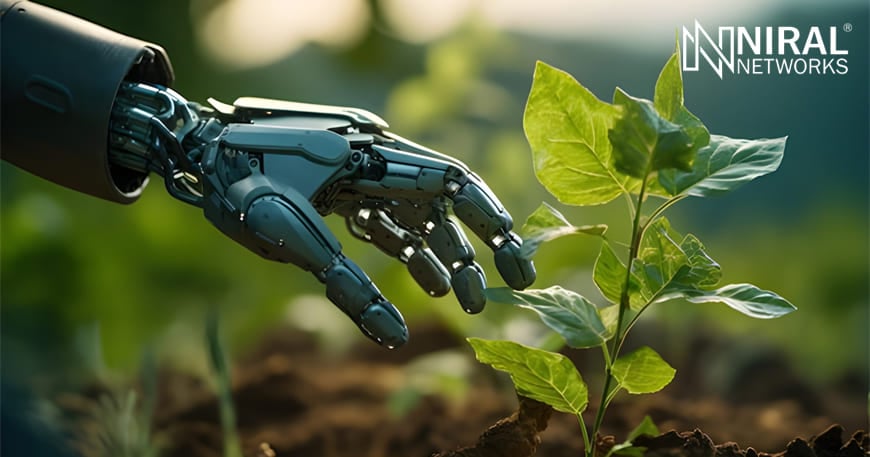The agricultural sector, a cornerstone of the global economy, is undergoing a digital transformation that promises to revolutionize how we grow, manage, and distribute food. As the world faces increasing challenges such as climate change, resource scarcity, and a growing population, the adoption of digital technologies in agriculture has become more critical than ever. At the heart of this transformation is “Digitization as a Service,” a concept that leverages cutting-edge technologies to enhance agricultural practices, improve efficiency, and drive innovation. Niral Networks’ NiralOS technology plays a pivotal role in this evolution, offering comprehensive solutions that empower farmers and agribusinesses to embrace the future of farming.
The Digital Revolution in Agriculture
The agricultural industry has traditionally relied on manual labour and conventional methods. However, the advent of digital technologies is transforming agriculture into a data-driven, precision-oriented, and highly efficient sector. This digital revolution encompasses various technologies, including the Internet of Things (IoT), artificial intelligence (AI), big data analytics, cloud computing, and edge computing. These technologies enable real-time monitoring, data-driven decision-making, and automation, leading to improved productivity and sustainability.
The Role of Digitization as a Service
Digitization as a Service (DaaS) refers to the comprehensive suite of digital solutions and services provided by technology companies to facilitate the digital transformation of various industries, including agriculture. DaaS encompasses a range of offerings, from IoT devices and sensors to data analytics platforms and cloud-based services. For the agricultural sector, DaaS provides the tools and technologies needed to enhance every aspect of farming, from soil management and crop monitoring to supply chain optimization and resource management.
Key Benefits of Digitization in Agriculture
1. Precision Farming
Precision farming, also known as precision agriculture, involves the use of digital technologies to monitor and manage agricultural processes with a high degree of accuracy. IoT sensors and devices collect data on soil conditions, weather patterns, crop health, and pest activity. This data is then analyzed using AI and big data analytics to provide actionable insights and recommendations.
For instance, farmers can use precision farming techniques to apply the right amount of water, fertilizers, and pesticides at the right time, minimizing waste and maximizing yield. According to a report by the Food and Agriculture Organization (FAO), precision farming can increase crop productivity by up to 20% while reducing the use of inputs by 10-15%.
2. Real-Time Monitoring and Decision-Making
The ability to monitor crops and livestock in real-time is a game-changer for farmers. IoT sensors provide continuous data on various parameters, such as soil moisture, temperature, humidity, and nutrient levels. This real-time data enables farmers to make informed decisions and take timely actions to address issues.
For example, IoT-enabled irrigation systems can automatically adjust water levels based on soil moisture data, ensuring optimal hydration for crops. Similarly, livestock monitoring systems can track the health and activity of animals, alerting farmers to potential health issues or abnormal behavior.
3. Data-Driven Insights
The agricultural sector generates vast amounts of data, from weather forecasts and market trends to crop yields and soil conditions. By harnessing the power of big data analytics, farmers can gain valuable insights into their operations and make data-driven decisions. These insights help optimize farming practices, improve resource management, and enhance overall efficiency.
For instance, predictive analytics can forecast crop yields based on historical data and current conditions, allowing farmers to plan their planting and harvesting schedules more effectively. Market analytics can also provide insights into consumer preferences and demand, helping farmers make informed decisions about what crops to grow.
4. Sustainability and Resource Management
Sustainable farming practices are essential for preserving natural resources and ensuring long-term food security. Digital technologies play a crucial role in promoting sustainability by enabling efficient resource management and reducing environmental impact. IoT sensors can monitor soil health, water usage, and energy consumption, helping farmers implement eco-friendly practices.
For example, smart irrigation systems can optimize water usage, reducing wastage and conserving water resources. Precision agriculture techniques minimize the use of fertilizers and pesticides, reducing soil and water contamination. By adopting sustainable practices, farmers can contribute to environmental conservation while improving their profitability.
NiralOS: Empowering Digital Agriculture
Niral Networks’ NiralOS technology is at the forefront of the digital transformation in agriculture. NiralOS offers a comprehensive suite of products and services designed to address the unique challenges of modern farming. Here’s how NiralOS is empowering the agricultural sector:
1. Edge Computing for Real-Time Processing
NiralOS leverages edge computing to process data closer to the source, reducing latency and enhancing performance. In agriculture, edge computing enables real-time data processing and analysis, allowing farmers to make immediate decisions based on current conditions.
For example, edge computing can process data from IoT sensors in the field, providing real-time insights into soil moisture, temperature, and crop health. This real-time intelligence helps farmers optimize irrigation, fertilization, and pest control, improving crop yield and quality.
2. Private 5G Networks for Seamless Connectivity
NiralOS enables the deployment of private 5G networks, providing high-speed, reliable, and secure connectivity for agricultural operations. These networks support a wide range of applications, from remote monitoring and control of equipment to data transmission and communication between devices.
The low latency and high bandwidth of 5G networks ensure seamless communication between IoT devices, enabling real-time data exchange and automation. This connectivity is crucial for precision farming, where timely and accurate data is essential for optimizing operations.
3. IoT Integration for Comprehensive Monitoring
NiralOS seamlessly integrates with IoT devices and sensors, creating a connected ecosystem that monitors and manages various aspects of agricultural operations. From tracking soil conditions and weather patterns to monitoring crop health and livestock activity, IoT integration provides comprehensive visibility and control.
The platform supports a wide range of IoT protocols and standards, ensuring compatibility with existing infrastructure and enabling scalable deployment. This flexibility allows farmers to expand their digital capabilities and adapt to changing needs.
4. Big Data Analytics for Actionable Insights
NiralOS harnesses the power of big data analytics to extract valuable insights from vast amounts of agricultural data. The platform uses machine learning algorithms to analyze historical and real-time data, identifying patterns, trends, and anomalies.
These insights enable farmers to optimize their operations, predict demand, and improve decision-making. For example, predictive analytics can forecast crop yields based on historical data and current conditions, allowing farmers to plan their planting and harvesting schedules more effectively. Market analytics can also provide insights into consumer preferences and demand, helping farmers make informed decisions about what crops to grow.
5. Cloud-Based Services for Scalability and Flexibility
NiralOS offers cloud-based services that provide scalability and flexibility for agricultural operations. Cloud computing enables farmers to store and access data from anywhere, facilitating collaboration and data sharing. It also provides the computing power needed to process large datasets and run complex analytics.
The cloud-based nature of NiralOS ensures that farmers can scale their digital infrastructure as needed, accommodating growth and changing requirements. This scalability is essential for modern farming, where operations can vary significantly in size and complexity.
Embracing the Future of Agriculture
The digital transformation of agriculture is not just a trend but a necessity to meet the challenges of the 21st century. Digitization as a Service, powered by technologies like IoT, AI, big data analytics, and edge computing, is driving innovation and efficiency in the agricultural sector. Niral Networks’ NiralOS technology stands as a testament to the power of digital solutions, offering a comprehensive suite of products and services that empower farmers and agribusinesses to embrace the future of farming.
By leveraging the capabilities of NiralOS, farmers can enhance precision farming, improve resource management, and promote sustainability. The real-time monitoring, data-driven insights, and seamless connectivity provided by NiralOS ensure that agriculture remains at the forefront of innovation and progress.
As the world continues to evolve, the adoption of digital technologies in agriculture will play a crucial role in ensuring food security, sustainability, and economic growth. Niral Networks is committed to driving this transformation, providing the tools and solutions needed to navigate the digital age successfully.
Embrace the future of agriculture with Niral Networks and unlock the potential of digitalization to drive your farming operations forward.





